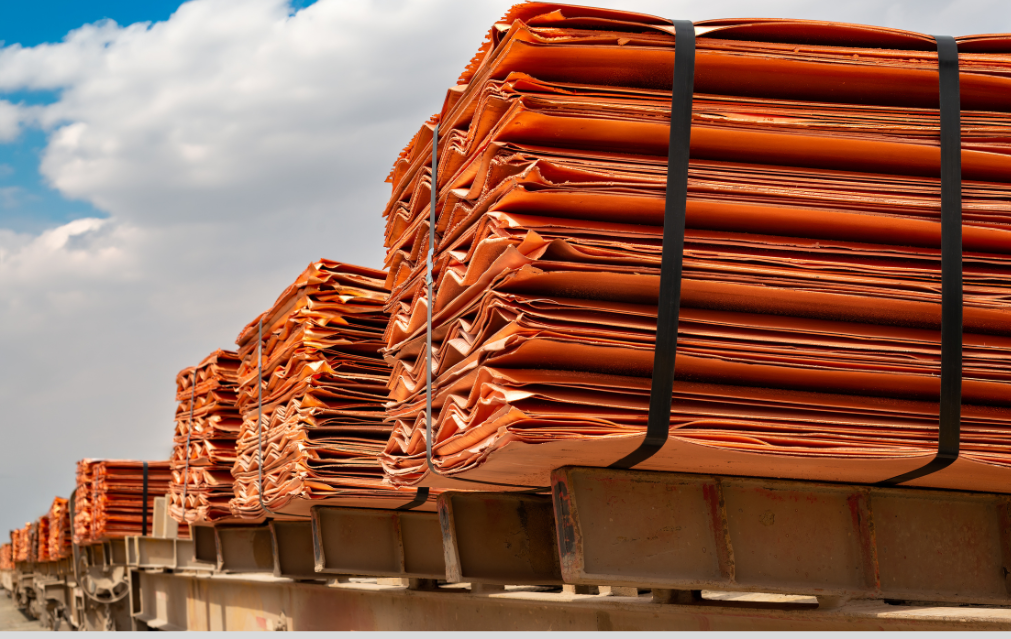Table of Contents
ToggleIntroduction
Metals are frequently divided into two groups: Specialised in ferrous and nonferrous metals. But where does copper fall? Is Copper a Ferrous Metal, or is it non-ferrous? If you have interest in this, please come here! The information sources concerning copper will be discussed here. In the present article, the sources of information about copper will comprise the category, characteristics, and application of copper.
What Are Ferrous and Non-Ferrous Metals?
Before we determine whether copper is a ferrous metal, let’s first define the two major categories of metals:
Ferrous Metals: These metals include iron, and hence they easily corrode when exposed to moisture. Some of them include steel, cast iron, and stainless steel.
Non-ferrous metals: These are not steel containing iron; hence, they do not rust or corrode easily. It includes copper, aluminium, brass, and zinc, among others.
Is copper a ferrous metal?
Its unparalleled durability, superior conductivity, and great aesthetics make it an indispensable commodity needed in today’s world innovations that stay relevant, functional, and exquisite in their use!
Why is copper non-ferrous?
Copper is considered non-ferrous due to its chemical composition and properties:
No Iron Content: It lacks iron, so it does not corrode in the same way ferrous metals do.
High Conductivity: Copper is one of the best conductors of electricity and heat, making it essential in electrical applications.
Resistance to Corrosion: Unlike iron, copper does not rust; instead, it forms a protective greenish layer called patina over time.
Copper Properties
Copper has a number of rather extraordinary features, which places the metal in a special category. Among the various uses, it is most suitable for electrical wire, heat exchangers, and so on because of its high electrical and thermal conductivity. It is very ductile and can make a host of products, whether it is shaped or bent so that it never cracks.
Is Copper a Ferrous Metal? Apart from that, copper is corrosion-resistant, meaning that it has the ability to resist severe environments. Thirdly, copper is also helpful in the prevention of the growth of dangerous bacteria as it has antimicrobial character. Also, copper recycling is not a difficult procedure; therefore, it is versatile in many ways since it has a greener bent.
Common Uses of Copper
Copper is widely used across multiple industries due to its excellent properties:
Electrical Wiring: Used in power lines, household wiring, and electronics due to its high conductivity.
Plumbing: Preferred in pipes and fittings because of its properties, which made it resistant to corrosion.
Construction: Used in roofing, in the construction of gutters, and for architectural embellishments.
Coins and Jewelry: It is shown in circulation in different currencies and kinds of ornaments.
Automobile Industry: Found in radiators, brake hoses, and electrical systems.
Copper Recycling: Why is it Important?
Indeed, there are numerous benefits of recycling copper, starting with the ability to save natural resources; Is Copper a Ferrous Metal? It is actually more costly to mine copper than it is to recycle the material in question. Mining waste and pollution of the environment are also cut by a major extent applying this new method.
Moreover, recycled copper has the same quality as that obtained from genuine mines, hence being considered cheaper to deal with. Firstly, it would be more sensible to recycle it to keep the resources to produce them in the future, which would otherwise cause more deterioration of natural resources in the copper industry to the detriment of the environment.
Copper Wire Scrap: A Valuable Commodity
Particularly why copper wire scrap is on the demand list and why copper scrap can be used in many industries. This is because they are usually collected and sold as they have higher resale values, as we are now experiencing. This is good news for industries since the attributes of used copper wires do not degrade; hence, the recycled copper wires can be used as input in place of the mined copper. Is Copper a Ferrous Metal?
Comparison of Ferrous and Non-Ferrous Metals
To make things clearer, here’s a table comparing ferrous and non-ferrous metals:
| Property | Ferrous Metals | Non-Ferrous Metals |
| Magnetic | Mostly Yes | Mostly No |
| Examples | Steel, Cast Iron | Copper, Aluminum |
| Property | Ferrous Metals | Non-Ferrous Metals |
| Magnetic | Mostly Yes | Mostly No |
| Examples | Steel, Cast Iron | Copper, Aluminum |
How to Identify Copper Easily?
If you’re unsure whether a metal is copper, here are some simple ways to identify it:
Color: Natural copper has a reddish-brown color.
Weight: It is exceptionally heavy, particularly when compared to other nonferrous materials such as aluminum.
Non-Magnetic: The fourth condition that has been stated above is that copper is not an attractive material to magnets.
Malleability: Another property is that it is quite ductile and thus can be bent without the substance breaking.
Conclusion
FAQs
Why is copper considered a non-ferrous metal?
It is a non-ferrous material since it does not contain iron; it does not rust or corrode due to its content.
Can copper rust like iron?
No, copper does not rust. Nevertheless, it develops a greenish film known as patina as time goes on.
Is copper more valuable than iron?
Yes, copper is valued more because it has high conductivity, has high corrosion resistance, and is 100% recyclable.
Why is copper wire scrap in high demand?
Copper wire scrap is liked much because recycled copper has good conductivity after melting, which is cheaper than copper production.
How can I tell if a metal is copper?
Both coppers can be identified through their reddish-brown colour or non-magnetic property and the high conductivity of the metal. It is also slightly heavier, and compared to the previous models, it bends significantly easier.

